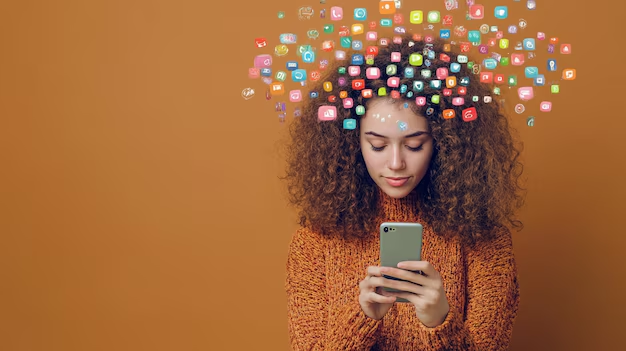Social Media and Mental Health: A Growing Concern
Social media and its impact on mental health have become a growing concern in recent years, with numerous studies and discussions shedding light on both the positive and negative effects of online platforms on individuals’ well-being. Here are some key aspects of this issue:
1. Negative Effects on Mental Health
- Anxiety and Depression: Studies have shown a correlation between increased social media use and higher rates of anxiety and depression. Constant comparison to others, cyberbullying, and the pressure to present a curated, idealized version of life can lead to feelings of inadequacy or isolation.
- Social Comparison: Social media platforms often encourage users to compare themselves to others. Seeing filtered, perfect versions of people’s lives can lead to negative self-perception, especially for vulnerable individuals, including teenagers and young adults.
- Sleep Disruption: The use of social media, especially before bed, can interfere with sleep. The blue light emitted by screens suppresses melatonin production, making it harder to fall asleep, while engaging with social media content can lead to rumination or stress.
- Addiction and Overuse: Social media can be addictive, leading to excessive screen time and even symptoms of addiction. This can reduce real-life interactions, leading to feelings of loneliness and isolation.
2. Positive Aspects of Social Media
- Support Networks: Social media can provide a sense of community and a platform for individuals who feel marginalized or isolated in their offline lives. Support groups, mental health awareness campaigns, and online communities can help people feel seen and heard.
- Access to Mental Health Resources: Social media has made mental health resources more accessible. Users can find educational content, connect with professionals, and access tips for managing mental health issues. Mental health awareness has also grown significantly due to social media campaigns and influencers raising awareness.
- Connection and Belonging: Social media can help people stay connected, especially in situations where in-person interaction is difficult (e.g., during the COVID-19 pandemic). For many, it offers a sense of belonging, and online friendships can be valuable sources of support.
3. The Role of Social Media Companies
- Regulation and Responsibility: With the growing concerns about the negative impact of social media on mental health, many advocate for stronger regulations on social media companies. This includes making changes to how algorithms work, combating cyberbullying, and ensuring that platforms promote positive and healthy content.
- Platform Design: Social media platforms have been increasingly criticized for their role in fostering addictive behavior. The design of platforms—such as infinite scrolling and notifications—has been intentionally created to keep users engaged. Some companies have begun experimenting with features to improve mental health, such as content moderation, time limits, and tools for users to track their usage.
4. Managing the Impact
- Digital Detox: Taking regular breaks from social media can help individuals reset and reduce stress. Mindfully engaging with social media, rather than mindlessly scrolling, can also help mitigate negative effects.
- Self-Care Practices: Encouraging users to prioritize offline activities—like exercise, reading, or spending time with loved ones—can help balance the time spent online. Focusing on self-care routines and mindfulness can reduce the adverse effects of social media use.
5. The Future of Social Media and Mental Health
As awareness of the link between social media and mental health grows, there is a push for more research into how platforms affect individuals, especially younger users. Innovations in mental health-focused technologies, such as AI-driven wellness apps, are also emerging to help manage online behaviors and promote well-being.
In conclusion, social media has both positive and negative implications for mental health. While it can serve as a tool for connection and support, its overuse or harmful practices can exacerbate feelings of anxiety, depression, and loneliness. Finding a healthy balance and encouraging responsible usage are key to minimizing the adverse effects on mental health.

